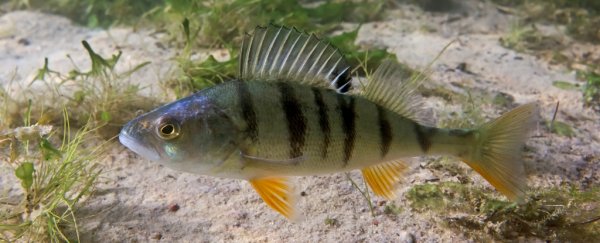When you think about water pollution, you most likely picture chemical spills or agricultural run-off. But it turns out that cold water pollution is a thing, and in some cases it can be just as damaging to river ecosystems as chemical pollution.
This type of pollution usually happens in spring, summer, and autumn, when rivers and streams are warmed up by the Sun, and the local flora and fauna get used to swimming around in those balmy temperatures. The problem arises when water taken from deep inside dams is released into these systems - dousing the surrounding rivers with water that can be up to 12 degrees Celsius colder.
That may not sound so bad, but temperature changes of just 1 or 2 degrees Celsius have been shown to alter fish behaviour, and some species are unable to survive temperatures more than a few degrees outside of what they're used to.
The cold water being released is also low in food sources for fish, seeing as phytoplankton can't survive in the deep, dark water at the bottom of dams.
"River temperatures have really important effects on fish breeding and growth and behaviour," said Simon Mitrovic, a life scientist from the University of Technology Sydney (UTS) Science in Australia.
To fix the problem, Mitrovic and his team are testing a simple device called a thermal curtain, which pushes warm water from the surface of a dam into the river, instead of cold water. Made out of reinforced polypropylene, the thermal curtain is a cylinder that gets raised and lowered in order to divert warm water into the dam outlet below.
The researchers are now testing the thermal curtain in a dam on the Macquarie River near Wellington in central New South Wales, and investigating the impact it has on downstream river temperatures, as well as the nutrient and algae content of the water.
"So far, we've seen improvements in temperature averaging about 2.5 degrees between the year before and the year after the use of the thermal curtain," said UTS Science environmental biologist Rachel Gray, who's working on the project as part of her PhD research.
"That might not sound like a lot, but it's actually great news for the ecological health of the river, because organisms living in the river – like many native fish, for example – have a niche temperature range they require for spawning cues, and cues for other life events."
The research is ongoing, so the results haven't been published as yet, but if the trend holds up, the thermal curtain could be a cheap and easy way for dam operators to reduce their negative impact on the surrounding river ecosystems.
It could also allow dams to increase the amount of water they release into parched river systems, without having to worry about the damage that'll be caused by the cold water pollution.
UTS Science is a sponsor of ScienceAlert. Find out more about their world-leading research.
